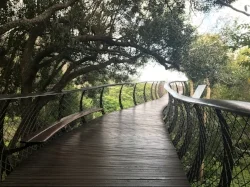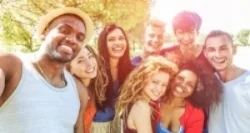It isn't you - Loneliness is an Epidemic
Patrice Ford Lyn CPC
Feeling Lonely is Hard
“It’s hard to make friends in DC.”
I hear this weekly from people of diverse nationalities, ethnicities, income levels, religious beliefs, gender identities etc. We live in the most technologically connected age in the history of civilization, yet rates of loneliness have doubled since the 1980s - 40 percent of American adults say they feel lonely.
Building community can be challenging but it is critical. Experience and research tell us that “loneliness kills – it places our bodies in a chronic stress state and increases inflammation and is a more significant health factor than obesity, smoking, exercise, or nutrition.
“Social connections are really good for us, - people who are more socially connected to family, friends, community, are happier, physically healthier, and live longer than people who are less well-connected.” “Taking care of your body is important, but tending to your relationships is a form of self-care too. That is the revelation.”
Building a Community
So now what do you do? Community isn’t the number of likes you have on Facebook or followers you have on Twitter. Those generally are comprised of loose connections. You probably wouldn’t call any of them if you fell down the steps and needed a ride to the doctor. Let’s say you muster up some energy and decide to go out! You grab your keys and go to where the people are. There are a lot of people in community spaces and events - galleries, parks, clubs, markets, lounges, religious/spiritual spaces. But we know that you can be lonely in a crowd.
Maybe instead, you decide to find a special someone - a girlfriend, boyfriend, friends with benefits, et al and create community with them. Well, we also know that you can be lonely in a marriage, so it’s not just the number of friends you have, and it’s not whether or not you’re in a committed relationship, but it’s the quality of your close relationships that matter.” I know people who are the life of the party and feel exceptionally lonely because they don’t feel connected to the very people they seem to be having so much fun with. Sometimes the loneliest people don’t look lonely at all.
Many of us like our own company and there’s nothing wrong with that. Having time to ourselves to decompress or enjoy a good book are healthy activities. But if you are at home by yourself imagining the fun others are having (#FOMO), pay attention. There is no way around it. There are times when we want to laugh, share a meal, and spend time with people we care about and who care about us but don’t know where to go or who to call. It may sound daunting but it really doesn’t have to be.
We CAN create community. But, how? Ask yourself:
Why: First, figure out what is making you feel lonely. Is community what you need or is something else happening?
What: If you are desiring more meaningful connections, identify the qualities of community that you have most appreciated in the past. Do you want to be a part of a team or club and work on relationships based on common interests? Do you want to reconnect with people you once felt really connected to? Do you want to get to know your neighbors better?
Challenges: What has prevented you from taking these steps in the past? What makes it challenging to take steps now? Which challenges are you prepared to take on?
Resources: What resources - information, starting points, etc. - exist for you to build community? What is the first step you can take?
How: What are the qualities of friendship that you bring to these communities? How do you show up and contribute?
Growth: What are the ways you may need to stretch to have the community you want? What may you need to do or see differently?
Clarity: How will you know when you have begun to create the community you want?
It is okay to feel lonely sometimes.
Loneliness is a normal human emotion and almost everyone experiences it at some point. It can be caused by a variety of factors not just a lack of community. In fact, profound loneliness can sometimes be traced back to childhood experiences and not solved by building more community. However, if you want to figure out how to build connections that feel fulfilling, join the Catapult|Community|Conversations webinar on building community. We will explore where community is or isn’t present in our lives, how positive connection and community looks and feels to each of us, and steps for creating, maintaining and growing the communities we want. Be in community with others who want to be in community and build community. Look around, it’s probably about one out of every two people you see. If you are not ready to be in a group coaching setting, contact me for a free consultation for 1-1 support.



